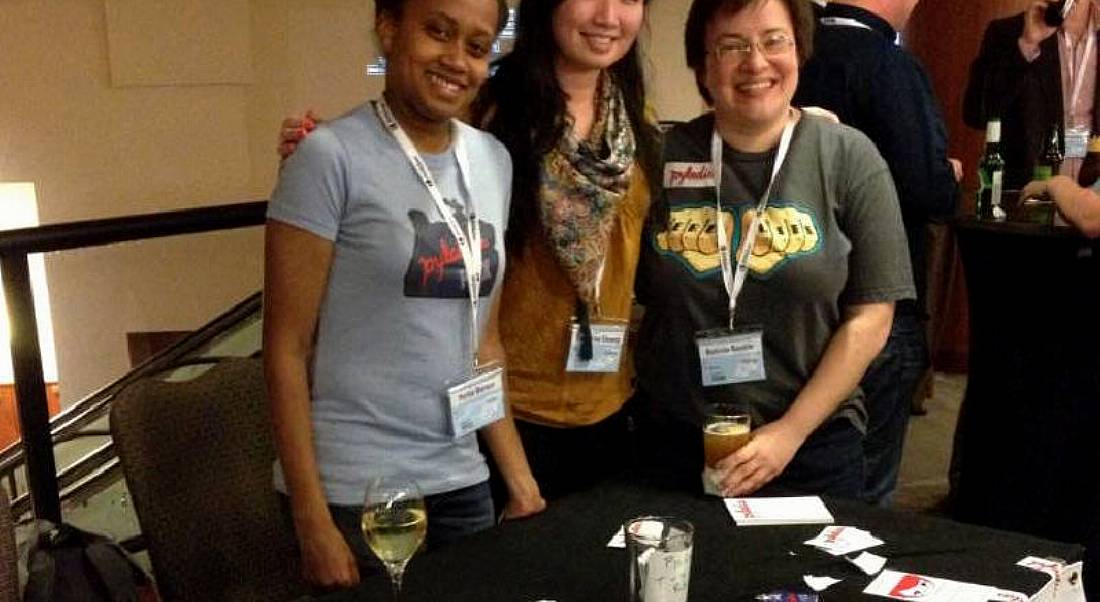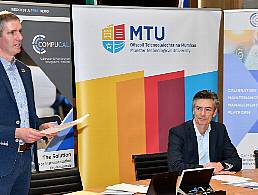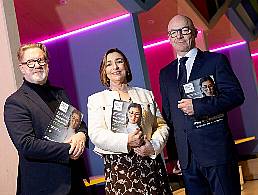Inspiring stories of kids who code have been a regular occurrence in technology news, making names like James Whelton and Jordan Casey as recognisable as any Irish entrepreneur’s. With the support of non-profits like CoderDojo and other volunteer groups, these youngsters have taken it upon themselves to learn valuable skills and apply them to projects that solve problems or simply offer something fun to do.
Yet coding is not just for kids. Nor is it just for computer scientists or programming students. Grassroots coding organisations aimed at teaching adults how to code have been springing up worldwide, and many of these groups are open to anyone willing to learn.
Code is quickly becoming the lingua franca of the tech sector, a key growth industry here in Ireland and abroad. For people working in tech and for those that aspire to work in tech, it helps to be familiar with the vernacular.
Python consistently ranks among the eight most popular programming languages, as measured by the TIOBE Programming Community Index. Its emphasis on readability makes it more accessible than most, and it has been adopted as the principal language for tinkerers on the Raspberry Pi single-board computer.
“Python is a powerful language that plays well with others,” said Diarmuid Bourke, chair of PyCon Ireland, an annual Python conference that took place in Dublin this month. “It’s able to run in a very diverse range of environments, from running sites such as Reddit and YouTube to powering the online features of popular games.”
What Python also has is a friendly worldwide community that welcomes newcomers. Bourke said the Python scene in Ireland is “very enthusiastic” and the leaders of various groups are constantly working to grow their reach.
A sell-out event
Getting bigger every year, PyCon Ireland sold out well in advance this time around, with more international delegates than ever before. “They love what’s happening in Ireland right now, and that serves as a great message to multinationals who might be looking to set up a base here,” said Bourke.
At each conference, the PyCon Ireland committee selects one or two objectives to focus on. This year, tackling diversity was a key theme – particularly in terms of gender. The PyCon Ireland committee worked hard to encourage more women to attend and get involved with the event and, as result, saw an increase in female attendees. They also lined up more female speakers this year, compared to just one or even none at prior events.
It is widely accepted that coding is, currently, a male-dominated space. Historically, however, there is no evidence to support the idea that coding is just a man’s game – just look at Ada Lovelace, the world’s first computer programmer.
October 15th marked Ada Lovelace Day and, in the spirit of female programming, was also the launch of PyLadies Dublin during the PyCon Ireland sprints (a set period of focused development).
PyLadies began in Los Angeles, California, in 2011 and has already grown to more than 20 locations worldwide. Lynn Root, founder of PyLadies San Francisco, said, “If I remember correctly, these ladies were hanging out in a coffee shop hacking, and decided that this needs to be more of a ‘thing’.”
Despite the name, PyLadies is chiefly female-friendly, not female-only. “PyLadies is not just limited to women. We often have events for everyone,” said Root. “The events open to everyone are still over 50pc female attendance, which is awesome,” she added.
PyLadies hosts workshops, lightning talks, speaker events, hack nights and other varieties of events for coders from beginner level to more advanced. They also help participants prepare for conference proposals and talks.
PyLadies also addresses issues that women face within a male-dominated industry and provides a judgment-free and competition-free atmosphere for them to learn and grow. The effect on the larger Python community is visible in the numbers. Female attendance at the annual PyCon US conference in California in 2012 reached 11pc – the first time the figure had broken into double digits. This year, PyCon US 2013 had more than 20pc female attendance, and the number of female speakers matched that.
PyLadies Dublin
Noticing that coding clubs were popping up all over Dublin, but still not many women were turning up, a group of people including Vicky Twomey-Lee, tech event organiser, decided to provide a female-friendly environment to encourage women not just to participate, but also to mentor.
Thus were the origins of PyLadies Dublin. “It’s to reinforce that it’s OK to go to these events in general, it’s OK to ask questions, and don’t be afraid to talk about what you know,” said Twomey-Lee.
PyLadies Dublin will begin hosting events in November. These will be informal gatherings where participants will bring laptops and code together for a few hours. “I hope to build up a community of female Pythonistas from all backgrounds, and they don’t have to be programmers,” said Twomey-Lee. “It’s a way to meet and form a network in an already small community, raising awareness and promoting Python.”
PyLadies participants are welcome to collaborate on projects or even start new ones. “It’s an opportunity to learn new technologies and figure things out together,” said Twomey-Lee. “By helping one another, the participants will gain more knowledge and confidence, and I am hoping they will also reach out to more women.”
Just like kids gathering at CoderDojo workshops and experienced programmers meeting up at conferences to share ideas, coding movements are driven by a passion to educate oneself. “For me, it started as something selfish. I wanted to learn,” said Root.
A recent report published by the Programme for the International Assessment of Adult Competencies (PIAAC), a worldwide study by the Organisation for Economic Co-operation and Development (OECD), highlighted life-long learning as key to bridging the growing generation gap in digital skills. If a generation of children can take it upon themselves to learn to code, why not adults?
For those with a background in IT and programming, it does no harm for them to broaden their skills base and keep up with the newly popular languages. Karl Flannery, CEO of Storm Technology, said that though job applicants will always need to meet certain criteria and measure up to the company’s evaluation process and experience requirements, additional skills would be taken in to account and just might give one candidate the edge over another.
“We would be looking at them from that point of view and saying, ‘That’s great, they’ve upskilled themselves’,” he said.
Becoming familiar with the language of the industry can also aid communication between employees, giving those that don’t work in development a greater appreciation of the complexity involved. “You could flip it around and say we have to deal with the legal profession and a lot of us have done some sort of light training in that area,” said Flannery. “It takes away the dumb questions from the equation, so that they have better, more intelligent questions to ask.”
Employing the knowledge
Gary Mullan, joint MD of recruitment agency Prosperity, added that it’s not just what you learn, it’s what you do with it that counts. “It doesn’t matter if they learn to code from Python Ireland or DIT (Dublin Institute of Technology) or Rails Girls, or if they went and got a bit from everywhere – it’s really what they have done with the coding skills they have learned.”
Mullan said there may be exceptional coders out there with no formal training, and it’s a portfolio of work that will help them to stand out. “[That’s] the calling card for them to get a role in tech,” he said.
With coding an in-demand skill among employers, putting these skills to use becomes ever more important. “It’s all about implementation for us,” said Mullan. “People get to things different ways, and if they’re talented, as they say, all cream rises to the top.”
Mullan said aspiring coders with a body of work to showcase their skills demonstrate they are motivated, goal-orientated and process-driven. Even for those seeking roles in other areas, how they utilise code to make a blog or personal website stand out can grab employers’ attention.
“The industry’s been sort of turned upside down,” said Mullan. “What people are doing in their spare time can actually get them a job.”
A version of this article appeared in the Sunday Times on 20 October




